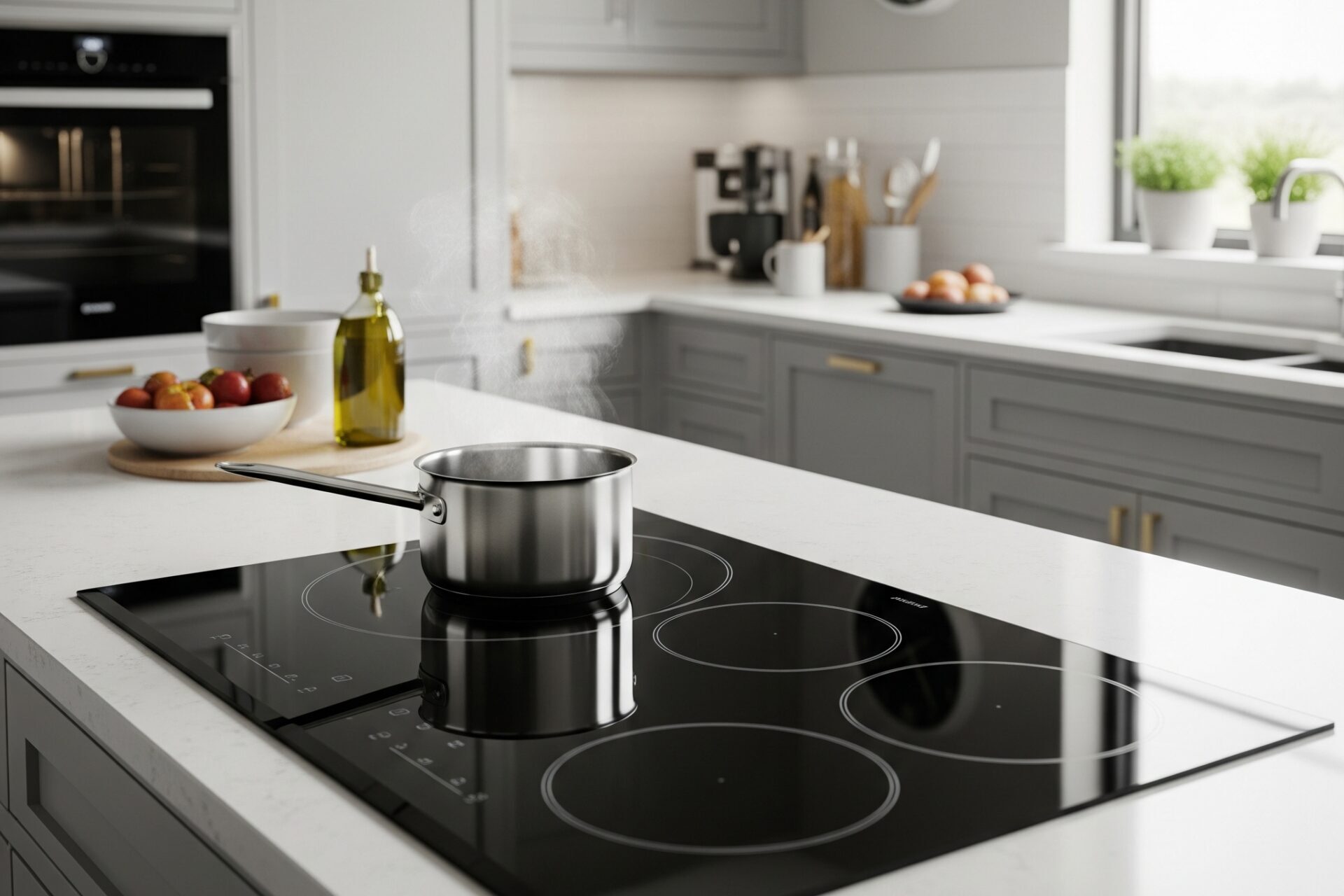
Question: Is Induction Cooking Healthier Than Gas?
Answer: Induction cooking is healthier than gas. It improves indoor air quality by reducing emissions and burn risks are lower than gas. Studies have indicated that induction cooking retains more nutirents in food over a gas stove.
Induction Cooking vs. Gas: A Health Comparison
Many homeowners consider switching to induction cooking. They ask, “Is induction cooking healthier than gas?” This article explores the health impacts of both cooking methods. We examine indoor air quality, burn risks, nutrient retention, and ease of cleaning. This information helps you decide which cooking method best suits your needs.
We will analyze the potential health benefits and drawbacks of each method. This analysis will provide a clear, simple comparison. We aim to equip you with the knowledge to make an informed choice for your kitchen.
Indoor Air Quality
Gas stoves release pollutants like nitrogen dioxide and carbon monoxide. These gases can worsen respiratory conditions like asthma. Induction cooking produces almost no indoor air pollution. It heats food directly through a magnetic field. This process eliminates combustion and reduces harmful emissions.
Studies show gas stoves significantly impact indoor air quality. They contribute to higher nitrogen dioxide levels. These levels can exceed national ambient air quality standards. Induction cooking offers a healthier alternative, especially for families with asthma or respiratory sensitivities.
Improved indoor air quality is a key benefit of induction cooking. This benefit makes it an appealing choice for health-conscious individuals.
Click here for more information on kitchen refacing near me Toronto
Related Article: What Is the Best Cookware for Induction Stoves?
Related Article: What Cooks Better Gas or Induction?
Nutrient Retention in Food
Induction cooking heats food quickly and evenly. This rapid heating helps preserve vitamins and minerals. Gas cooking can create hot spots, leading to uneven cooking and potential nutrient loss.
Studies indicate induction cooking retains more nutrients compared to gas cooking. This advantage results from the precise temperature control and even heating. Consequently, induction cooking can contribute to a healthier diet.
Preserving nutrients is essential for healthy eating. Induction cooking offers an effective way to maximize the nutritional value of your meals.
Ease of Cleaning: Induction vs. Gas
Induction cooktops have a smooth, flat surface and this surface makes them easy to clean. Spills do not bake onto the surface like they can on gas stovetops. Gas stoves often have grates and burners that require more effort to clean.
The easy cleaning of induction cooktops saves time and effort. It also promotes better kitchen hygiene. This ease of maintenance is a significant advantage for busy individuals.
A clean kitchen contributes to a healthier environment and induction cooking simplifies this task with its easy-to-clean surface.
Initial Investment and Long-Term Savings
Induction cooktops typically have a higher initial cost than gas stoves. However, induction cooking offers long-term savings. Induction cooktops are more energy-efficient than gas stoves, reducing electricity bills.
The higher upfront cost of induction may seem daunting. But, the long-term energy savings can offset this initial investment. Over time, induction cooking can prove to be a more cost-effective choice.
Energy efficiency is an important factor to consider. Induction cooking contributes to both environmental sustainability and financial savings.
Conclusion: Making the Right Choice for Your Health
Is induction cooking healthier than gas? The evidence suggests that it is. Induction cooking offers superior indoor air quality, reduced burn risks, better nutrient retention, and easier cleaning. While the initial cost is higher, long-term savings and health benefits make induction a compelling choice.
The decision to switch to induction depends on individual needs and priorities. Consider your budget, cooking habits, and health concerns. By weighing these factors, you can make an informed decision that best suits your lifestyle. This article provides valuable insights to help you make the right choice for your kitchen and your health.
Ultimately, the decision rests with you. We hope this comparison empowers you to select the cooking method that best supports your well-being and aligns with your values.

Blue Malue Get in touch with Blue here.
